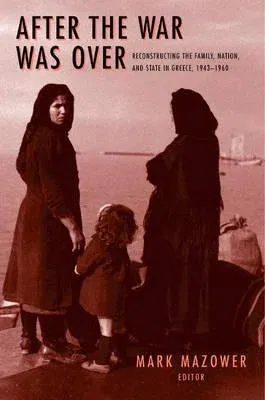This volume makes available some of the most exciting research currently
underway into Greek society after Liberation. Together, its essays map a
new social history of Greece in the 1940s and 1950s, a period in which
the country grappled--bloodily--with foreign occupation and intense
civil conflict.
Extending innovative historical approaches to Greece, the contributors
explore how war and civil war affected the family, the law, and the
state. They examine how people led their lives, as communities and
individuals, at a time of political polarization in a country on the
front line of the Cold War's division of Europe. And they advance the
ongoing reassessment of what happened in postwar Europe by including
regional and village histories and by examining long-running issues of
nationalism and ethnicity. Previously neglected subjects--from children
and women in the resistance and in prisons to the state use of
pageantry--yield fresh insights.
By focusing on episodes such as the problems of Jewish survivors in
Salonika, memories of the Bulgarian occupation of northern Greece, and
the controversial arrest of a war criminal, these scholars begin to
answer persistent questions about war and its repercussions. How do
people respond to repression? How deep are ethnic divisions? Which forms
of power emerge under a weakened state? When forced to choose, will
parents sacrifice family or ideology? How do ordinary people surmount
wartime grievances to live together?
In addition to the editor, the contributors are Eleni Haidia, Procopis
Papastratis, Polymeris Voglis, Mando Dalianis, Tassoula Vervenioti, Riki
van Boeschoten, John Sakkas, Lee Sarafis, Stathis N. Kalyvas, Anastasia
Karakasidou, Bea Lefkowicz, Xanthippi Kotzageorgi-Zymari, Tassos
Hadjianastassiou, and Susanne-Sophia Spiliotis.

